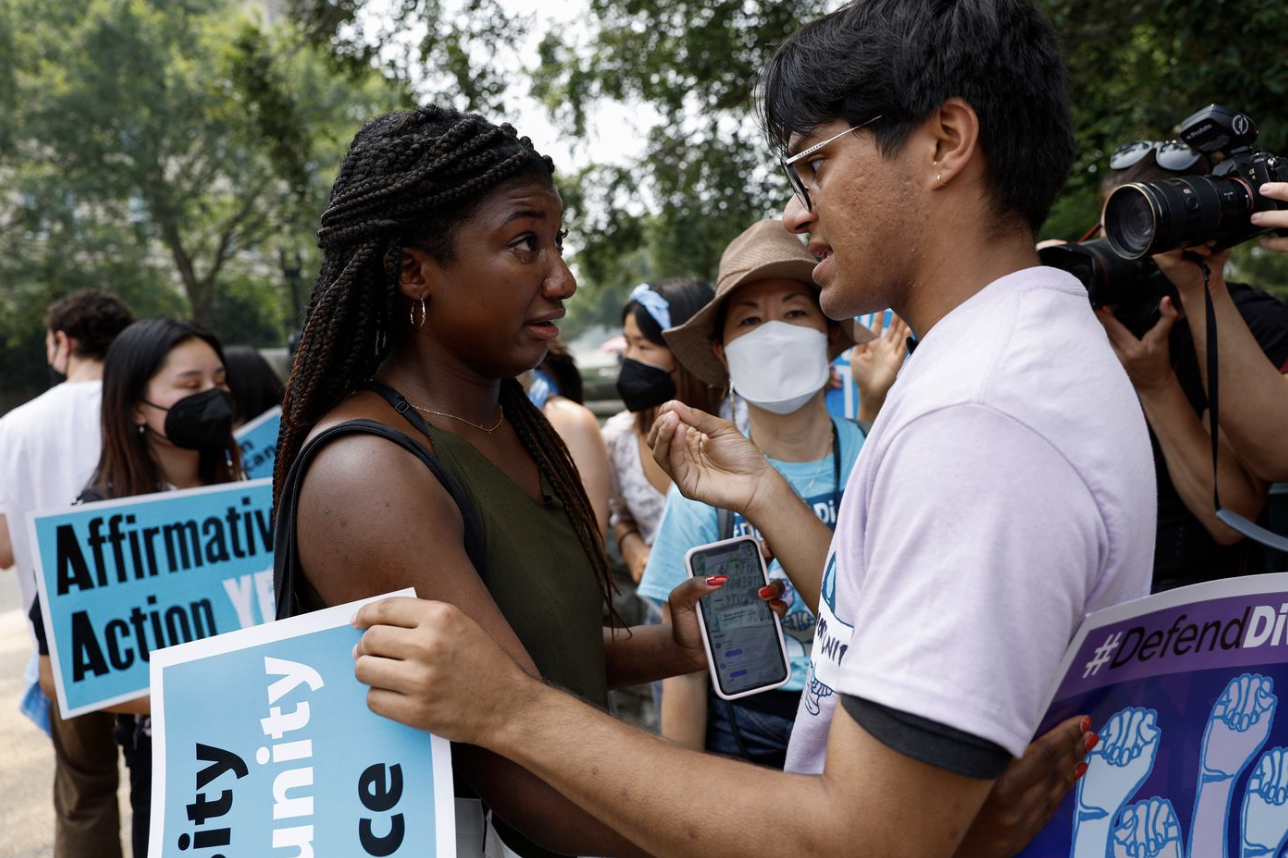By: Gerard Baker – wsj.com – July 3, 2023
The rulings on affirmative action, student loans and free speech herald a counterrevolution against the left’s domination of American institutions.
Fourth of July celebrations arrive with special resonance for conservatives this year. It is clear now that we are in the throes of a full-scale American cultural counterrevolution, propelled by rising popular opposition to the coercive orthodoxies of a hegemonic left and enforced by a string of impeccable decisions from a Supreme Court intent on reviving the spirit of 1776. Spectacular displays of pyrotechnics from an endangered establishment, increasingly hysterical at the dawning realization of its imminent overthrow, are as entertaining—and ultimately harmless—as any you will witness in the night skies this holiday.
The popular rebellion against the cultural left that has seized so many of the institutions of American life has enjoyed mixed success at the political level. But since that hegemony was established in large part through half a century of grotesque judicial overreach, it was likely to be truly overturned only by a judiciary that would finally move to substitute restraint for activism.
With last week’s timely, pre-Independence Day succession of decisions by the court we can see better than ever that the counterrevolution is advancing apace. In Biden v. Nebraska, Students for Fair Admissions v. Harvard, and 303 Creative v. Elenis, a solid majority struck solid blows for the principles and values that helped create the U.S. in the first place.
In the three cases—respectively over the Biden administration’s student debt cancellation plan, racial preferences in college applications, and free-speech protections in commercial interactions—the judgments rescinded the usurpation by an expansive executive of the power of the purse, restored the principle of merit over group membership as a key determinant of individual opportunity, and reaffirmed a citizen’s right not to be compelled to endorse ideas with which she disagrees.
Note the common prefix in the principal verb in each of those subclauses, “re-.” One meaning is “back” or “backward.” But this is no reactionary backlash to the inevitable march of modernity, as most of the media, with predictable and prejudicial alarmism, calls it. These decisions, along with other critical rulings in this and the preceding court term, represent the necessary undoing of successive judicially authorized derogations of the most defining American principles—fairness, equality, freedom, the proper exercise and distribution of government powers.
The counterrevolution has been achieved through painstaking efforts by conservatives to recruit, develop and advance jurists of reliably originalist disposition, as well as through presidential nomination—by Donald Trump, especially—of well-qualified justices who wouldn’t, for a change, acquiesce to the left’s dominance.
But reading last week’s decisions, I would argue that the most important force working in this revolution’s favor—perhaps as it was in 1776—is the sheer intellectual weight of the argument.
Contrast the various majority opinions last week with the left’s dissents. The opinions of Chief Justice John Roberts and Justice Neil Gorsuch, writing for the majority in the three cases, are characterized by taut writing, unimpeachable logic, close adherence to argument, legal principles, facts and evidence, and detailed interpretation of existing case and statutory law. The fulcrum of the legal argument is—curiously enough—on the law as it was written, as it must be applied, not on some larger political or social objective.
With the exception of Justice Elena Kagan, the court’s members from the left write and speak with the apparently unchallengeable conviction that their role is not to apply the law but rather to make it, in the pursuit of some desired higher outcome—one that happens to conform to their ideological priors rather than to any constitutionally mandated principle or process.
In the process they adduce not legal reasoning, but political rhetoric of the crudest character and most clichéd language.
Justice Ketanji Brown Jackson, dissenting from the racial-preference ruling, tells us that “deeming race irrelevant in law does not make it so in life,” and that race still matters to the “lived experiences” of Americans. Justice Sonia Sotomayor, misrepresenting the decision in 303 Creative—which was, remember, about whether a business can be required to engage in a form of speech that violates its owner’s conscience—by saying the “symbolic effect of the decision is to mark gays and lesbians for second-class status.”
The left’s response to the reversal of its long success in making the court a second legislative branch of government is also telling. Instead of accepting, as limited-government, originalist conservatives did, the need for a long campaign to undo the hegemony of the rival philosophy, they want to short-circuit the process. This means protecting or restoring their authority by making radical institutional changes to the court or, failing that, by delegitimizing it, using a friendly media to impeach the reputation of justices they oppose with spurious allegations of impropriety.
Like almost all rebellions, the current American cultural counterrevolution is certain to face further and intensified resistance from the institutions and people whose dominance it threatens.
To see this article in its entirety and to subscribe to others like it, please choose to read more.
 Listen Online
Listen Online Watch Online
Watch Online Find a Station in Your Area
Find a Station in Your Area









 Listen Now
Listen Now Watch Online
Watch Online
